The curse of political correctness in China and the US
How the China-US conflict will end very much depends on the vociferous court of public opinion of each country. At the moment, political correct views are being spewed on both sides. Such behaviour shows a common human weakness to demonise the other and threaten to keep both sides locked in a vortex of vitriol. East Asia Institute academic Lance Gore implores the people of both countries to keep their senses and adhere to their better judgement. In particular, China should be clear-eyed that the combined strength of the US and its allies exceeds any level China may attain in the foreseeable future and act accordingly.
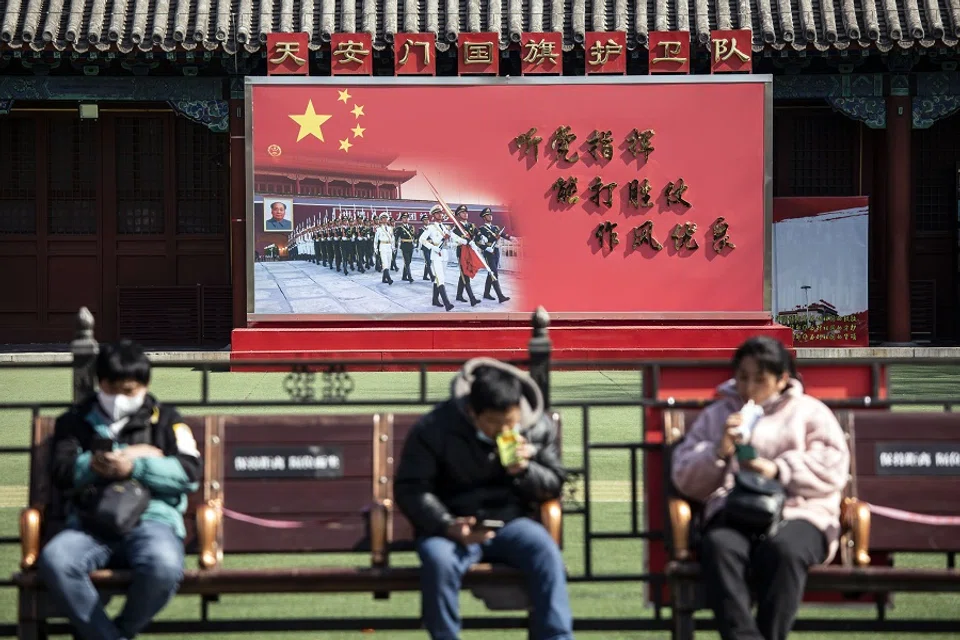
China-US conflict is inevitable, going by the trajectory of history. But will it end in peaceful coexistence or a final showdown? The answer lies in whether political wisdom will triumph over the "glaring chickens and rednecks" (乌鸡眼与红脖子) - that is, the belligerent domestic sentiments on each side. Currently the people of both countries are showing negative emotions and the tendency to demonise the other. Resulting from that is a strong pressure to be "politically correct", which has a silencing effect on divergent views.
What we have here are two very different ideologies, political systems as well as traditions of history and culture. And yet, despite the differences, the flaws of human nature exhibited are the same. The political systems on both sides lack the capacity for self-correction, albeit for different reasons.
The demons in our nature
As humans and their ancestors evolved over hundreds of thousands of years, they spread over expanses of jungles and savannahs in familial units. In order to survive, they had to work closely with one another to hunt and gather food, as well as to defend their territories against external threats. Over time, the distinction between "us" and "them" (i.e., the in-group and the out-group) arose almost spontaneously and subconsciously.
As the tribes were spread out, contact between groups was very rare. Strangers who appeared in one's territory were normally seen as marauding enemies to be treated violently and killed. Anthropologists still find traces of this phenomenon dating from the beginning of the 20th century in Papua New Guinea and other places. Experiments dealing with modern humans, such as the Robbers Cave experiment conducted in Oklahoma, also confirm the existence of the natural human tendency to differentiate between groups, and to be antagonistic towards outsiders and to exhibit aggressiveness.
Research shows that the two main reasons behind human acts of violence are what we normally think of as good traits that we earnestly inculcate in the next generation, namely, high self-esteem and moral idealism. Injured pride accounts very much for violent behaviour in everyday life. On a larger scale, massacres, genocides, war and terrorism are all connected to moral idealism or efforts to build an ideal society. Moral idealism is dangerous because it inevitably divides people into the good and the bad, and justifies whatever means to achieve the good and annihilate the evil.
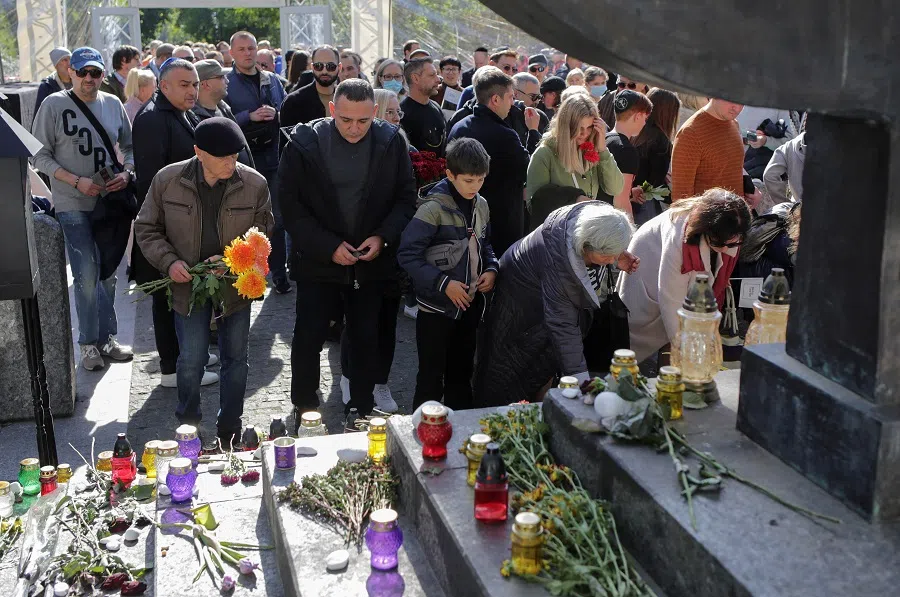
People always think of themselves as the good guys and of the other as the evil one. They tell stories, label the targeted party and characterise them simplistically to create what is known in academia as the "myth of pure evil". Once the label of "evil" is slapped onto the other, they are no longer regarded as humans, and can be subjected to atrocities with no limits, just like how the Jews were treated by the Nazis during World War II. Notably, most of the Germans who committed the anti-Semitic atrocities were well-bred, respectable citizens in their daily lives.
One of the fundamental reasons for the political and social conflicts in America is the demise of common sense.
Anyone within the in-group who questions the myth is a traitor who has to be punished severely. Ostracisation is the worst punishment for humans who are social animals. To avoid being booted out by their fellows, people tend to follow the crowd even when they harbour doubts within themselves. They may even rush to commit violence, just to show outstanding performance for the in-group. That was the psychological basis for the violence in the Cultural Revolution. It is also the source of the pressure of political correctness.
From the evolutionary standpoint, doing what is necessary to stay in the in-group is a self-defence mechanism but it is also an obsolete instinct, with disastrous consequences if activated in modern society. Looking back on the national catastrophes caused by the Great Leap Forward, Cultural Revolution and so on, we see that the greatest malaise lay with Mao Zedong's underestimation of the evil in human nature, which he allowed to fester in mass movements. This resulted in battle lines being drawn on the basis of "class", leading to a tumultuous situation of "all against all" in a total civil war and massive non-natural deaths.
The innate human viciousness behind such mayhem is very useful for revolutionaries fighting to gain power, but for the established powers thereafter to make use of it is to unleash an uncontrollable force. Let's bear in mind that fascism is fomented by mass movements. By the same token, it is not impossible for populism to launch a great dictator into power even in the bastion of democracy that is the US.
The US and the curse of political correctness
One major effect of the rise of "glaring chickens and rednecks" is the drowning out of common sense and rationality. One of the fundamental reasons for the political and social conflicts in America is the demise of common sense. The basis for a common understanding for all of society is being obliterated, causing the whole system to malfunction, and tremendous conflicts to build up, sending the entire nation onto a course of decline.
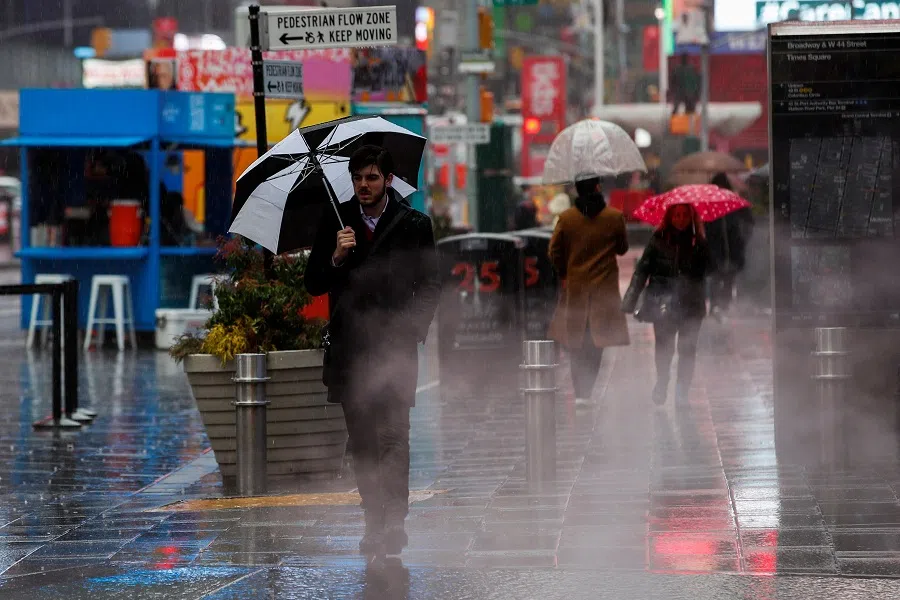
There are three forces attacking common sense in the US. The first is the absolutist trend in partisan rivalry. Thanks to the bipartisan set-up, the "us versus them" consciousness feeds into a zero-sum game. Both the Republicans and the Democrats have turned into rednecks, abiding by something not unlike the glaring chicken-style philosophy of struggle from the time of the Chinese Cultural Revolution. They raise hell over every small matter to score political points. Election campaigns become declarations of war. Opposition is just for its own sake, as is the veto of any resolution from the opposing party.
Since the good guys are not supposed to take flight, the only option left is to fight. Driven by a sense of justice and primeval instincts, the US may engage in a "just war" against China for one reason or another...
The second force is the culture of political correctness. When an inappropriate statement is made, or a wrong choice of word, people launch a demonstration or protest. They pile criticism upon criticism; they blow everything out of proportion; they take offenders to court (or congressional hearings). Always rushing to seize the moral high ground, they stir up social conflicts with righteous indignation, thereby creating opportunities for extreme forces.
The third force is profiting from the rule of law. Attorneys have seeped into every nook and cranny, initiating lawsuits everywhere so as to make money for themselves. This not only magnifies the transaction costs in society tremendously, sealing off a great deal of opportunities and latitude, but also forces everyone to speak either too cautiously or with pompous propriety. Few dare to speak the truth as it is or follow the dictates of common sense.
The combination of these forces fills society with an air of viciousness and pugnacity. With dissatisfaction boiling over, there is an increasing sense of frustration. The "us versus them" mentality and tactical approach of seizing the moral high ground naturally spill over into China-US relations. One of the very few bipartisan consensus that is politically correct for both is to define the Chinese Communist Party as "evil".
The rise of China has triggered a primal, instinctive fight-or-flight response in the Americans. Since the good guys are not supposed to take flight, the only option left is to fight. Driven by a sense of justice and primeval instincts, the US may engage in a "just war" against China for one reason or another, just as it got itself caught up in the Vietnam War, and in initiating the wars in the Middle East, Afghanistan and many other places.
China returning to Cultural Revolution conditions?
Unfortunately, similar mechanisms have also been activated in China. Like the Americans, once they become self-righteous, the Chinese are also incapable of learning from history, especially the lessons of the Cultural Revolution. While China is still a long way off from seeing partisan rivalry and the trend of litigiousness in its economy and society, some of the hallmarks of the Mao Zedong era are reviving in the country in connection with political correctness. The extent of political correctness during that period dwarfs anything we see in the US today.
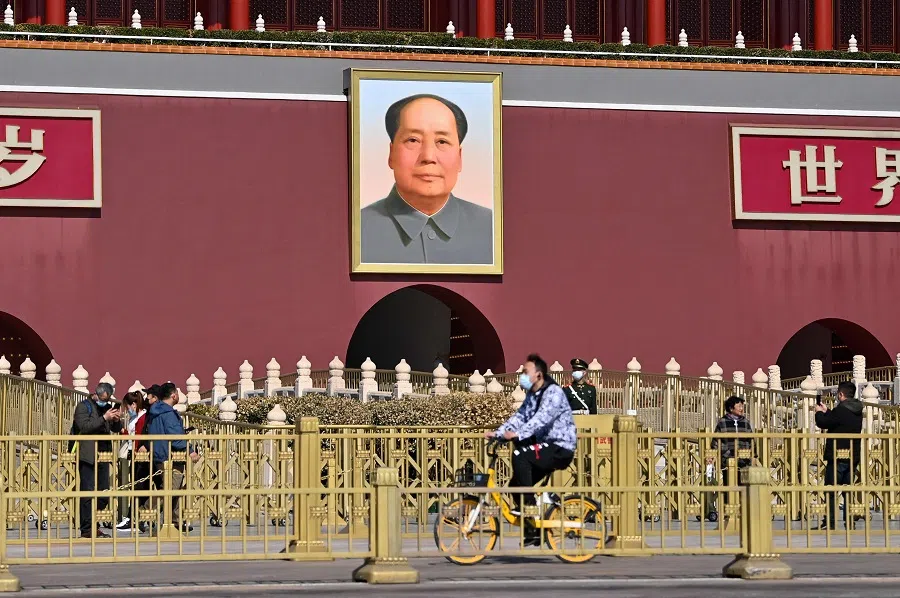
Those were the days of the Red Terror and prevalent benightedness. People had no protection of their lives and properties, and little human dignity to speak of. There were far bigger troubles back then than "glaring chickens and rednecks". Blatant beating, smashing, looting, burning and killing were the order of the day, all under the banner of the "dictatorship of the proletariat".
The Cultural Revolution was terrifying in that it was like a meat grinder and everyone put into it was also part of the machine, grinding others. Everyone was the originator of the tragedy that befell them. When Liu Shaoqi was being abused by the Red Guards in their denunciation rallies, he held up the Constitution of the People's Republic of China in his hand in defence of his human rights, seemingly oblivious to the fact that when he denounced Peng Dehuai just a few years earlier, Peng also supposedly had rights guaranteed by the constitution.
...the Chinese are sealing their country up in a discursive bubble filled with nauseating sycophancy, horn tooting, and the tendency to report only the good news and skip the bad ones.
Currently some of the basic conditions that led to the catastrophic Cultural Revolution seem to be re-emerging. The restoration of ideological orthodoxy has stimulated the rise of various forms of political correctness, as seen in the control on thought and information, as well as the dominance of one-sided publicity. The fanaticism of nationalism and personality cult is being stoked. With the proliferation of topics considered "too sensitive for discussion" and various taboos, people's mindsets are becoming narrower and narrower. Common sense and rationality are ebbing away.
Spewing unrestricted mockery and put-downs of other countries, the Chinese are sealing their country up in a discursive bubble filled with nauseating sycophancy, horn tooting, and the tendency to report only the good news and skip the bad ones. "Conspiracies" and "hostile forces" lurk everywhere. Snitching is encouraged. Even the linguistic style of the Cultural Revolution has come back. Detailed stipulations are given on what can be said, what cannot be said, and how to say it.
There are innovations too. For example, the street violence of the Cultural Revolution has been replaced by online verbal abuses and the use of the "human flesh search engine" (crowd-sleuthing and doxxing). Armies of internet ghostwriters are hired to fabricate "prevailing public sentiments" and the illusion that all is well. Outmoded ideas are used to bring about "unity in thinking, will and action". Such a move is not only rarely seen since the Cultural Revolution, but also at odds with the realities of a diverse society.
The rebels had their way during the Cultural Revolution. Now it's the "patriotraitors". The damage they can do exceeds what "enemy forces" from the outside can ever achieve.
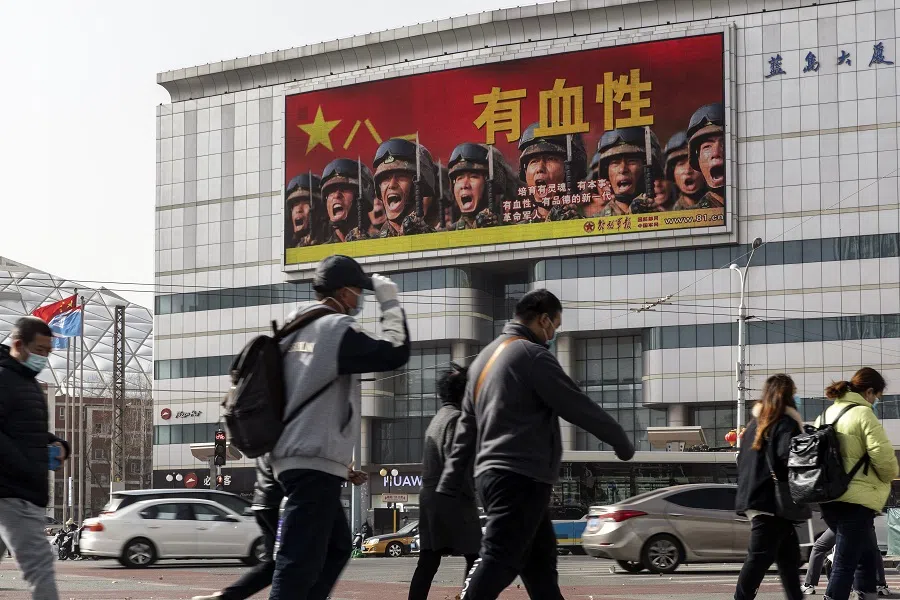
In the matter of China's relations with the US, it is the normally hawkish military that has said some things on the dovish side, while the foreign affairs departments, which usually play a dovish role, practise "wolf warrior diplomacy" amid the clamour raised by "glaring chickens and rednecks". Such switching of roles is very rare throughout the world. When they imagine that they hold the truth in their hands and are bolstered by justice within, people unwittingly become captives of their innate darkness. The rebels had their way during the Cultural Revolution. Now it's the "patriotraitors". The damage they can do exceeds what "enemy forces" from the outside can ever achieve.
Rationality, common sense and equanimity
China is undeniably on the receiving end in the ongoing confrontation. The Chinese feel that their national pride is hurt. Utterly convinced that "the American imperialists' desire to finish us off will never die" (美帝亡我之心不死), they instinctively seek to take an eye for an eye. That's all too natural.
Nevertheless, we need to recognise that, apart from rivalry between systems and ideologies, human traits cultivated over hundreds of thousands of years are also at play here. On both sides of the conflict, people firmly believe that the other party is the villain, so we can expect the struggle between the two countries to go on for a long time to come. Under such circumstances, it is hardly meaningful to harp on who is right or wrong, or who is good or evil. What would be meaningful is making sure that one can consciously break free from the bondage of the demons in our nature, bring reason to bear, and avoid mutual ruination in the end. To achieve that is to exercise great wisdom for a peaceful rise.
What allows us human beings to rise above the animal kingdom is the fact that we can use our reason to override our animal nature. When we look at China-US relations rationally and objectively, the following is clear: the US is very strong and has many allies; China is the absolute minority in terms of values, ideology and political system; the combined strength of America and its deployable allies far exceeds any level China may attain in the foreseeable future. Now is not the time for self-aggrandisement.
When common sense and rationality are dead, hope is lost for the nation. The country will either slide into stagnation and decline like the Soviet Union, or follow the footsteps of Japan and Germany just before World War II, tread the path of fascism, and ultimately be doomed.
Throughout early modern history, the rise and fall of hegemonic powers have always occurred within the sphere of Western cultural influence (inclusive of Japan that pursued a strategy of "leaving Asia and joining Europe"). China today represents the first case of the rise of a different kind of civilisational power, so the difficulties encountered and the complexity of the situation are like nothing ever seen before.
The foremost albeit unspoken obstacle in the way is the unavoidable racial factor, as expressed in the ancient Chinese saying: "They who are not of my race will surely harbour divergent intents (非我族类,其心必异)." So, all the more the following qualities are needed: rationality, wisdom, common sense, patience, the self-restraint to refrain from both swaggering pride and restless anger, coupled with sustained equanimity. History has taught us one thing: almost all emergent powers that got knocked down in the past were impatient, indignant "rednecks" that issued a challenge or became mired in conflict when they were still not strong enough.

In both China and the US, voices of reason abound. In the US, these voices dare to say what needs to be said, but their words often falls on deaf ears domestically, only to be copiously cited by the Chinese media. In China, the voices of reason often choose to silence themselves for fear of suppression by the authorities and of being crowd-sleuthed and doxxed by netizens. Rationality and common sense are giving way on both sides of the Pacific Ocean. Equanimity is being replaced by agitation. When common sense and rationality are dead, hope is lost for the nation. The country will either slide into stagnation and decline like the Soviet Union, or follow the footsteps of Japan and Germany just before World War II, tread the path of fascism, and ultimately be doomed.
The most vital riches a nation can possess are citizens of moral fibre who are responsible and have a respect for ethical bottom lines, reason and common sense. With such citizens, innate human evil can be better controlled and there will be a basis on which national stability and social progress may be built, not to mention a greater possibility for a peaceful rise. China should create better conditions for citizens like that to grow and make themselves heard.
Related: Is Chinese socialism superior? | Why democracy is failing and why some authoritarian regimes might just work | Can the CCP avoid the Stalin's curse under Xi Jinping? | The CCP's massive left turn and the post-Xi political landscape of China | Students snitching on teachers in Chinese classrooms: Return of Cultural Revolution? | A new Cultural Revolution? Why some Chinese are shocked by the CCP's relentless pursuit of 'common prosperity'


![[Big read] When the Arctic opens, what happens to Singapore?](https://cassette.sphdigital.com.sg/image/thinkchina/da65edebca34645c711c55e83e9877109b3c53847ebb1305573974651df1d13a)


